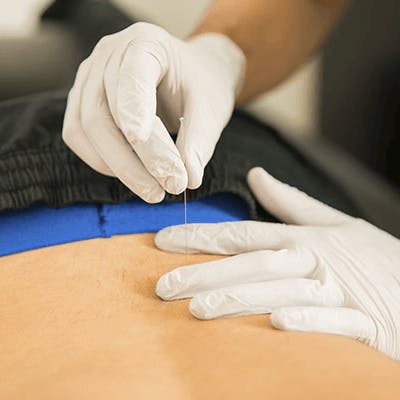
Dry needling is a physical therapy technique that utilizes thin filiform needles inserted through the skin to stimulate myofascial trigger points and muscular tissue. Myofacial trigger points are “knots” within the muscle that can contribute to limitation in flexibility, impaired musculare performance and pain. Dry needling is utilized in the treatment to deactivate trigger points and help alleviate pain and to address mobility restrictions. Dry needling can be performed in multiple ways, but the techniques used at Upright Athlete Physical Therapy include static, pistoning, and electrical stimulation assisted.
Is Dry Needling Painful?
Patients typically report some temporary discomfort during the treatment. After dry needling patients may have some initial soreness that may last 24-48 hours. Most patients report the soreness feels like muscle soreness one would experience after a hard workout. Occasionally patients may experience minimal bruising following treatment.
Is Dry Needling the same as Acupuncture?
Although both dry needling and acupuncture treatments utilized a filiform needles, known as acupuncture needles, the treatments are very different. Acupuncture medicine is based on an ancient chinese practice, where needles are inserted along meridian lines with the intent of altering a person’s Qi (energy flow). Conversely needling involves the needles being placed directly into the muscle or myofascial trigger points. Dry needling is only one component of physical therapy treatment plan and can be used to facilitate other treatments such as joint mobilization or stretching.
What types of Conditions can be Treated with Dry Needling?
Cupping is beneficial for most musculoskeletal issues including, but not limited to:
- Myofascial pain
- Tendinitis injures
- Muscular tightness
- Joint restrictions such as Frozen shoulder
- Chronic pain conditions
- Muscle strain injuries such as hamstring or adductor
- Radiculopathy including low back and neck pain
- Headaches and face pain
- Fibromyalgia
- Carpel tunnel syndrome
